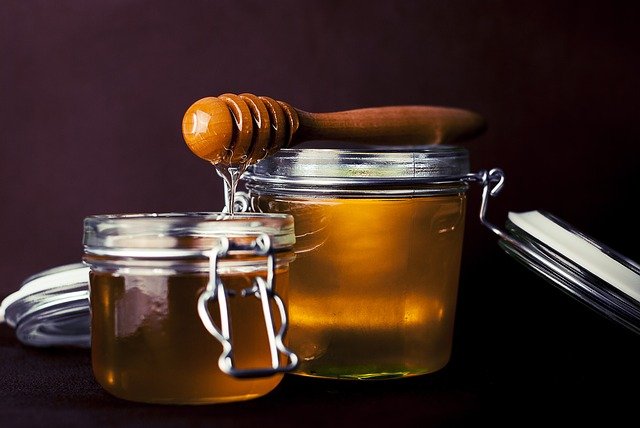If you’re a sugar glider owner, then you’ve probably been wondering whether or not honey is a safe food for your pet. In this blog post, we’ll answer that question and tell you everything you need to know about honey and sugar gliders.
Can sugar gliders eat honey as part of their diet, and if so, how much is safe to give them each day?
In the wild, sugar gliders’ diet consists of insects, nectar, and fruit.
In captivity, sugar gliders can be fed a diet of commercially-prepared food or a variety of fruits, vegetables, and insects.
Yes, Honey is also a popular treat for sugar gliders, and it can be given to them in small quantities as part of a well-rounded diet.
When feeding honey to sugar gliders, it is important to use raw, unfiltered honey that has not been processed or heated.
Heating honey can destroy the beneficial enzymes and nutrients that make it such a good source of nutrition for sugar gliders.
It is also important to only give honey as an occasional treat, as too much sugar can lead to weight gain and health problems.
When fed in moderation, honey can be a delicious and nutritious treat for sugar gliders.
Are there any other foods that sugar gliders should avoid eating, and why are they harmful to these animals’ health?
These small animals have become popular pets in recent years, but they require a special diet to stay healthy. In addition to sugar gliders’ staple diet of insects, they also need nectar and sap from trees.
However, there are a few other foods that sugar gliders should avoid.
- One food to avoid is avocado, as it can cause digestive issues.
- Another food to avoid is chocolate, as it contains a substance called theobromine which can be toxic to sugar gliders.
- Finally, sugar gliders should also avoid citrus fruits, as the acidity can cause stomach upsets.
While these foods are not necessarily harmful in small quantities, it is best to err on the side of caution and avoid feeding them to sugar gliders altogether.
What do sugar gliders eat in the wild and in captivity?
In the wild, their diet consists primarily of nectar, sap, insects, and fruit.
However, they will also eat small vertebrates such as lizards and birds. In captivity, sugar gliders can be fed a diet of commercially available food pellets, fruits, vegetables, and live insects.
It is important to remember that sugar gliders are very social animals and require a lot of interaction with their owners. As a result, feeding time can be an opportunity to bond with your pets.
How can you tell if your sugar glider is overweight or underweight, and what should you do if this is the case?
If you think your sugar glider may be overweight or underweight, there are a few things you can look for.
First, check to see if your sugar glider has a visible waistline when viewed from above.
Next, feel for any excess fat deposits around the base of the tail. If your sugar glider is overweight, you will need to make some changes to its diet and exercise regime.
Cut back on sugary foods and add more vegetables and fruits to its diet.
Encourage your sugar glider to be more active by providing it with toys and playing with it regularly.
If your sugar glider is underweight, it may be due to an underlying health condition such as diarrhea, parasites, or intestinal blockage.
Take your sugar glider to the veterinarian for a check-up to rule out any medical causes.
What are some common health problems that sugar gliders can suffer from, and how can you prevent them from happening in your pet’s case?
One of the most common health problems for sugar gliders is obesity. This is often caused by a diet that is too high in sugar and fat. Sugar gliders can also suffer from diabetes, which is a serious condition that can lead to blindness, organ damage, and even death.
To prevent these health problems, it is important to feed your sugar glider a healthy diet and to provide plenty of exercise opportunities. By taking these steps, you can help ensure that your pet enjoys a long and healthy life.
Conclusion for Can sugar gliders eat honey?
Honey is a sugar-rich food that can provide a quick source of energy for sugar gliders. However, it is important to feed honey in moderation as part of a balanced diet to avoid health problems associated with excessive sugar consumption.
When feeding honey to sugar gliders, it is also important to choose a high-quality product that has not been processed with chemicals or other additives. Overall, honey can be a healthy and delicious treat for sugar gliders, but it should be fed in moderation as part of a balanced diet. Thanks for reading!




